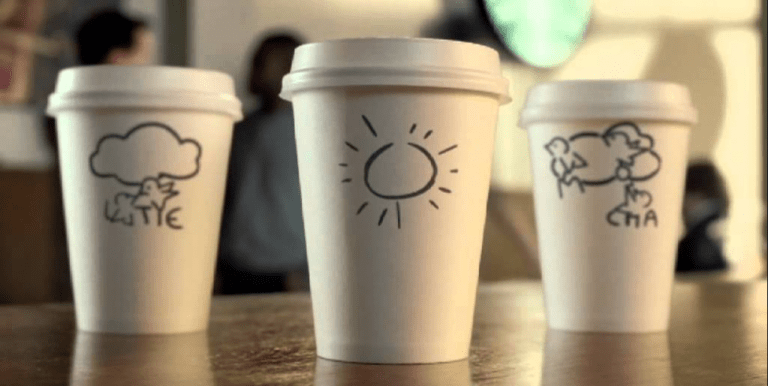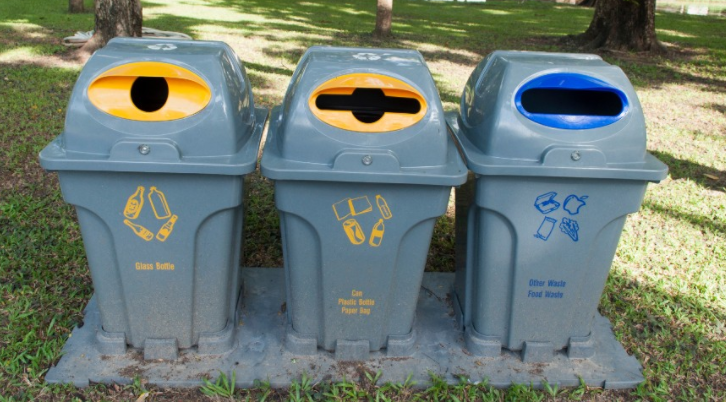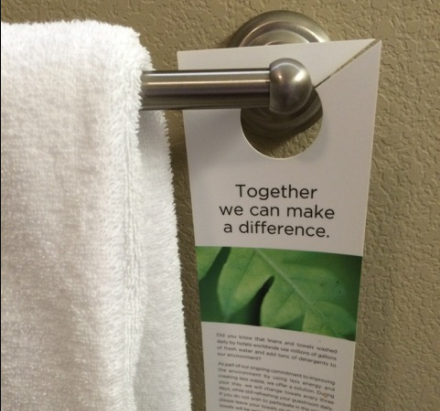
I recently read an article about how psychology could influence the way we recycle waste. Until that point, I thought I knew quite a lot – I was wrong.
It seems that as with many things, the key to success is all in the mind.
Pain, for instance, is all in the mind – yep, you heard correctly! After a recent car accident, as part of my physio, I attended a pain management course where I learnt (or I was told) how pain is not actually felt in my back, it’s my brain telling my back that it hurts. If I can change how I think, I can change how I feel. Same goes for waste and recycling. If I can change how I think about waste, I become better at managing it.
Here are some sound bites from psychologist studies around the world.
Identity
If you’ve ever had a take-out coffee with your name incorrectly spelt on the cup, chances are you did not recycle that cup.
To prove this, a team of psychologists ran a study with take-out cups, disguised as a juice tasting exercise. People were significantly more likely to recycle their cup when their names were spelt correctly: 48% did, as opposed to 26% of those who had no name at all and a paltry 24% of those who had a misspelling.
“We are averse to trashing something that is tied to our identity,” said Jennifer Argo of the University of Alberta, one of the authors of the study, “as it would be conceptually similar to trashing a part of the self, which makes people more likely to recycle.”
Design
| In another study, psychologists looked at how a bin aperture influences waste recycling behaviours. The study, way back in 2008, took two sets of three bins – placed throughout an academic building.
One set had no lids, while the other had a number of lids/apertures. The results were astonishing: Not only did the shaped lids increase correct recycling by 34%, but the number of contaminants, such as food, in the recycling stream collapsed by 95%. |
 |
Influence
In this study, psychologists looked at social norms and the power of the nudge theory.
| In 2008, Cialdini and his colleagues Vladas Griskevicius and Noah Goldstein brought their attention to hotel towels, rearranging the wording of the signs that ask hotel guests to reuse their towels.
By simply replacing a standard ecological message with social norms – saying most guests in the hotel reused their towels – they witnessed a 26% increase in reuse. When they specifically referenced the guests who had previously stayed in the very same room, the increase shot up to 33%: the closer the influence, the greater it’s effect. |
 |
Association
Once a consumer has made a purchase decision on price and quality, many increasingly want to be associated with environmental or ethical products and/or brands that reflect their own beliefs.
According to recent research, which examined how young adults’ attitudes towards climate change and carbon footprinting influence their purchasing decisions and brand loyalty, 83% of young people questioned in China, 73% in Korea, 55% in the UK and 57% in the USA all say they would be more loyal to a brand if they could see it was reducing its carbon footprint.
Here are some of the more well-known examples of association in practice:
Marks and Spencer – Joanna Lumley joins their Plan A campaign with SHWOPPING
The ‘shwopping’ manifesto encourages customers to recycle clothes in the store, which are then donated to charity.
FoodSave – The Major Of London
Providing support to small and medium-sized London based businesses to reduce their food waste and put surplus food to good waste.
Other brands already bought into the psychology of association are Tesco, Pepsico, Carlsberg, Quorn, Morrisons and more……
Putting all this science into action
So, in order to improve recycling and waste management, we have to think differently and help others to think differently too.
| Simple tactics such as branding, design and placement are proven to educate and influence how we see waste and therefore improve recycling behaviours.
At Unisan we have seen this first hand. Whilst we can’t name names, we can provide feedback from clients of ours who have installed bespoke recycling stations at their place of work. So, here are a further six examples of how psychology (branding, design and placement), can have a positive influence on waste management and recycling; |
 |
- Since the installation of the new bin station/s we have also seen an increase in the DMR waste stream as people are paying more attention to how they segregate their own waste.
- The reduction in bin collections during the day has resulted in us being able to make better use of the day janitors time and has provided us with an additional 3 hours a day out of his previous schedule to enable other tasks to be included into his daily schedule.
- Customer experience survey feedback comments upon how much cleaner and more appealing the bin stations now look, especially in the refreshment rooms.
- It is much easier and more hygienic to ‘empty’ the bin stations. The no-waste contact means the janitor no longer has to wear gloves when removing/changing the bags as the new process means no actual contact with the bag contents.
- Since the installation of the new bin station/s at our office/s we have received no further complaints about overflowing bins.
- The number of collections throughout the day have reduced by 50% on the office floors (from 4 to 2) and the food waste and cup waste streams are now only emptied during the evenings. Collections in the refreshment rooms have been reduced from 4 to 3 during the day and this is now mainly the DMR waste stream.
Keen to learn more?
